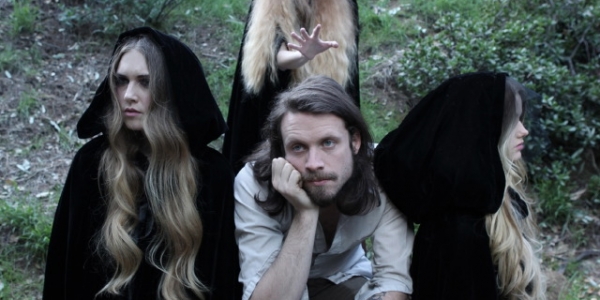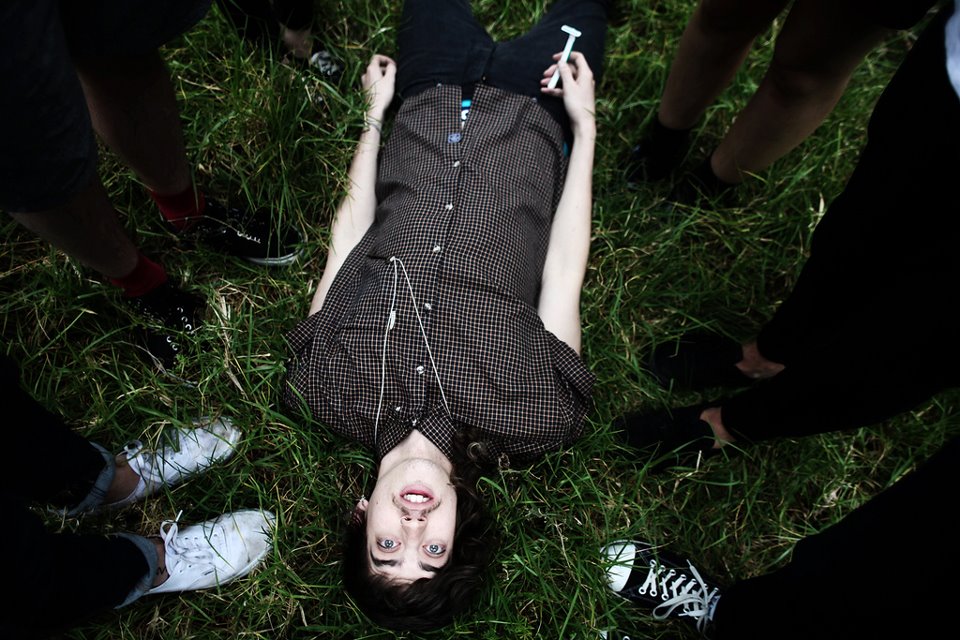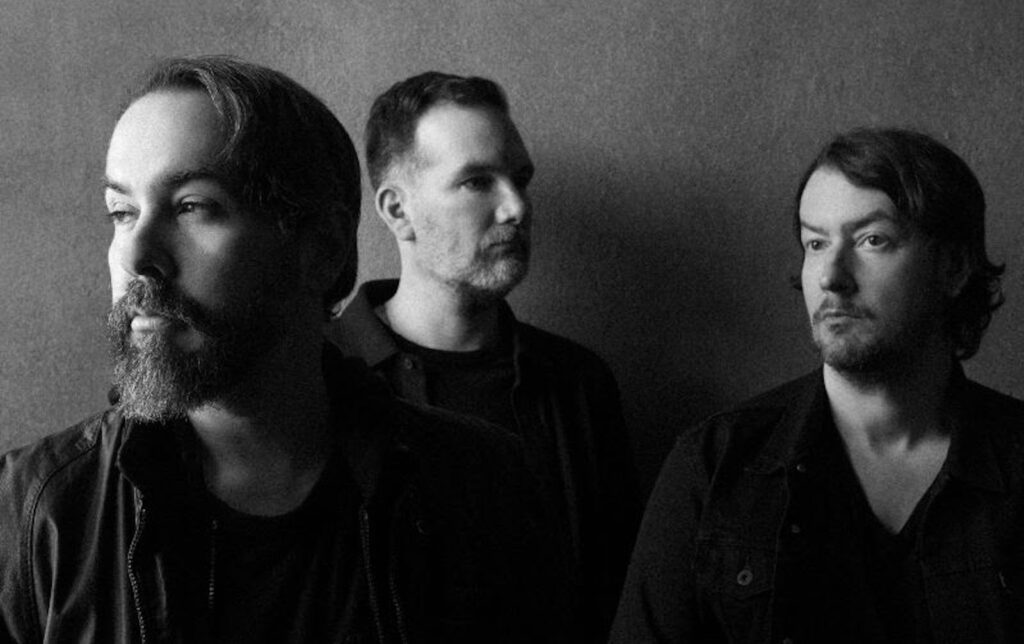What have you been up to since the album came out in May?
I’ve been touring, writing, doing a bit of acting.
Sounds like you’ve become a proper LA “slashie” – musician/writer/actor.
Oh yes, I’m a very fancy man.
How exactly did you end up moving to Los Angeles?
I had been driving around, up and down the coast, and I was in Big Sur and a friend of mine asked me if I was going to move anywhere. ‘I kind of want to live in California,’ I said. He told me his friends had a place in Laurel Canyon and I was just like, ‘Sure, I’ll do that.’ I moved there out of a grotesque, morbid fascination. I was so bored with Seattle; it felt like too obvious of a place for me to live. LA was exciting and strange to me. There was a little bit, admittedly, of ‘What are people going to think?’, maniacally laughing to myself about what a fucked up choice it was – but that’s the kind of stuff that excites me.
Fear Fun seems deeply influenced by your move to LA. There are references to your home in Laurel Canyon, but also movie stars, Hollywood Boulevard, plus a colourful array of freaks and wannabes that seem to personify the distinct character of Los Angeles.
I guess Los Angeles or Hollywood specifically, more than any other US city, has a global profile or character. It evokes certain abstractions for people everywhere in the world. Part of what I like to do with songwriting is to universalise individual experiences, I think that that’s what a good song does, even though it’s full of specificities and particulars, it feels universal somehow. But I’m not writing about the place directly. I’m really only writing about myself, and I just happen to be here.
But LA features in your songwriting in a way that Seattle never did.
That is true. I lived in Seattle for seven years and never once directly referenced Seattle in any of my music. I was a different songwriter there. I wasn’t really singing about my experiences, I was singing about my fantasy or something, my surrealist, impressionistic fantasy, which really has no time, has no place, its amorphous, pure sentiment, cloaked language. With this, I felt like a sense of place had to be in there because I was singing about myself and my experiences kind of in real time.
That’s funny – your life is LA doesn’t sound particularly real. If anything, I would describe the lyrics on Fear Fun as slightly surreal.
Oh really? I think I’ve always underestimated what feels normal to me. To me there is something very normal about undergoing some episodic existential breakdown. Maybe that feels more normal to me than it does to other people, maybe I assume that it is more common place and maybe that’s why it’s funny.
Is that what happened to you? Did you have an existential breakdown?
That may be what happened. Or it may not. There’s just a certain way of life I was sick of…it wasn’t entirely about moving to a new location, it was this realisation that I had when I was in Seattle that if you want to just drop out and live like and ape man and spend your time smoking weed and writing and not owning anything and not being with anyone and not being beholden to anyone or anything, that’s fine, you can do that. For a few years I was flirting with stability and a sense that I must spend the rest of my days maintaining the quality of life that I have now. That way of living and that way of thinking that just creates anxiety and weirdness. I chose to walk away from that, in some pretty significant ways. That’s more of a personal conversation. I was set on a certain trajectory that I was suspicious of and have been suspicious of for most of my life, and I was just staring into the gaping maw of its inevitable hold on my life.
Was it your job with Fleet Foxes or are we talking about a relationship that was heading towards marriage or what?
It’s all in that category – a relationship, a job, being in a situation that could have, that would have been the rest of my life. It was do or die time. I decided to die. I decided to kill everything. That included relationships, the band, my own music, my own relationship to my music, killing this musical persona that I had spent my entire 20s cultivating. In a lot of ways when I got here I was just on my own planet, and I wasn’t doing much other than writing songs all day and then going out by myself at night and drinking and staring into the middle distance and laughing at the absurdity of this new place I was in.
There’s a big character, a big ego, in your new work – was that being nourished in your old life?
No, it wasn’t. It’s not by accident that the music I played all through my 20s was the complete opposite of that. I more or less denied that part of myself. I wasn’t going to let that part of me be seen because it’s grotesque and it’s weird and it’s just too much. I had pretty much been told ever since I was a kid to dial it back, to suppress, to resist the urge; that that aspect of me needed to be contained. I’ve always been a little too much, talking a little too much, being a little too loud, being a little too out there, but that’s where my personal truth is.
Does it get you in trouble, being your ‘true’ self?
I’m an adult and I know where and when it’s appropriate and whatever, but being loud, being sarcastic, being a bit weird – that’s the shit that I’m good at. It’s funny or interesting by virtue of the fact that it is polarising, it does alienate certain types of people. It is unsightly to people with a little more propriety or something, but I have my own very deep sense of propriety. It’s all done in the spirit of truth. It’s not just showboating. For me, that was a very hard realisation. I had to run this risk of letting the monster back out. This music, all of this, is the revenge of the eight year old me, the natural me, the me that wasn’t distorted by authority and religion and guilt and vanity, etcetera. Trying to describe it all is a losing battle. Whatever it is, I am proud of it.
BY SIMONE UBALDI







